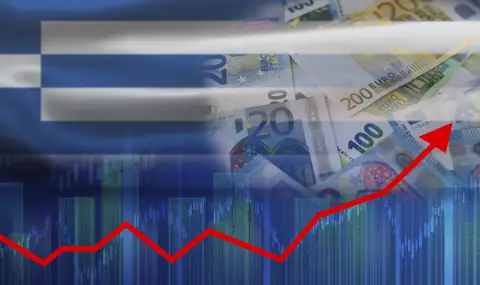The numbers speak for themselves: Greece reported economic growth of more than 2 percent this year, well above the average for EU. Instead of the projected deficit in the budget of 2.2 billion euros, the data points to a plus of more than 6 billion, informs the German public television ARD.
Against this background, Prime Minister Kyriakos Mitsotakis announced that Athens wants to pay off part of the debt from the financial crisis more quickly. Next year, the debt ratio must fall below 150% of gross domestic product (GDP). This still represents high indebtedness, a record for EU countries, but only 4 years ago this ratio was 200 percent of debt to GDP, writes ARD.
Mass protests despite economic boom
However, tens of thousands of Greeks are taking to the streets in protests across the country. In late November, numerous trade unions called for a general strike and largely paralyzed the country for a day. The reason for this dissatisfaction is the increase in the cost of living.
"Our wages are outrageously low and high costs are making the situation of young people in the country tragic," says Yannis Panagopoulos, president of the most important trade union in the private sector (GSEE).
In fact, too little of the economic boom reaches the people. Wages and pensions were radically cut during the financial crisis and are still far from their pre-existing levels. At the same time, food prices and rents rose sharply.
Many in the country accuse the government of doing too little against inflation, ie. that it does not increase wages and pensions enough.
Support for the rulers disappears
The mood is clearly visible from the current polls on voter attitudes: support for "New Democracy", the party of Prime Minister Mitsotakis, is declining rapidly, ARD points out.
When it comes to achieving economic stability, however, Greeks seem to approve of the government's measures: under Mitsotakis, the country has regained confidence in international financial markets. Rating agencies have again raised their rating for Greece, and many foreign companies are once again showing interest in the country.
The Greek economy is booming
Not only tourism is developing rapidly, but also many other sectors such as the pharmaceutical and defense industries or mining. And the construction industry is on the rise again - after years of severe crises.
Growing revenues from business taxes, but also the sale of stakes in highways and airports, provide stable revenues to the budget. In addition, the measures against the gray economy are yielding results, for example the limit for cash payments to only 500 euros, ARD points out. Also, every Greek is obliged to spend a part of his income - for about a third of the money earned, there must be evidence that it was spent. Card payments are considered evidence, as the information is immediately forwarded to the tax office.
Governors prepare relief
Missotakis knows that the mood on the street can be dangerous for him. In September, he presented his program for the next three years of government and made many social promises - from tax cuts, through financial assistance to buy a home, to better health care.
The minimum wage is expected to rise gradually to 950 euros, and it seems that the authorities are also preparing an update of pensions, writes ARD.
The Greek state still does not have enough money and remains heavily indebted. But the better the economy performs and the more the government enjoys these successes, the faster the patience of the people in the country will run out if they do not personally feel anything from this upswing, we read more in the ARD publication.
